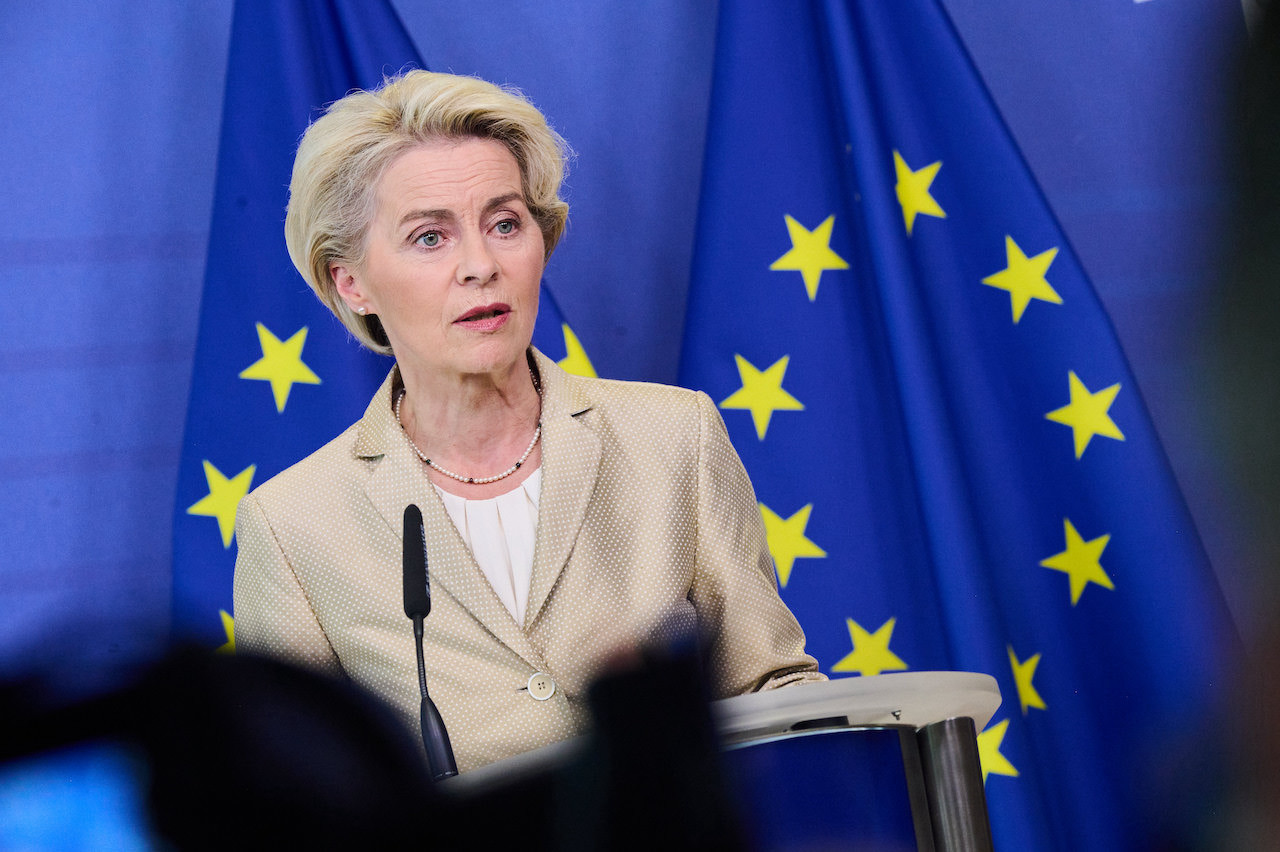Vladimir Putin’s signature of accession treaties in four Russian-occupied regions in Ukraine has been condemned as an escalation that the European Council says it will never recognize. “By wilfully undermining the rules-based international order and blatantly violating the fundamental rights of Ukraine to independence, sovereignty and territorial integrity, core principles as enshrined in the UN Charter and international law, Russia is putting global security at risk,” a statement from the European Council read.
Luxembourg’s foreign minister, Jean Asselborn (LSAP), joined the condemnation. In an interview on Luxembourgish RTL radio on Saturday, he said that the annexations were “extremely perfidious and against all rules of international law”. Not that breaking international law would worry the Russian president. “With Putin we are living in a world where injustice becomes justice, lies become truths and war becomes part of everyday life,” Asselborn said.
The Luxembourg foreign minister likened the new situation to that in Crimea in 2014. “We know the process...He marched into the four regions, spread fear and terrorism and then held these fake referenda. We have to understand that the regions we are talking about represent 15% of Ukraine, an area the size of Portugal,” Asselborn explained.
Allowing a country that is at war to join Nato, with all the consequences, is impossible.
But the foreign minister was also hesitant on Ukraine’s application to join Nato. “Allowing a country that is at war to join Nato, with all the consequences, is impossible,” he said. Rather, Asselborn wants the alliance to continue using sanctions and providing military assistance.
As for the 2,000 Russian residents in Luxembourg, Asselborn said they have “absolutely no means to stop the war” and warned against the any efforts to pitch the Ukrainian and Russian communities in the grand duchy against each other. “That wouldn’t help anyone, it wouldn’t end the war. It is something we must avoid.”
Nuclear threat
Ukraine has meanwhile recaptured the city of Lyman, in the Donetsk region that Putin had declared as Russian just one day earlier. Ukrainian president Volodymyr Zelensky said his troops had “completely cleared” the city of Russian forces.
Some analysts think that Putin would react to the military success of Ukraine in the annexed regions with an escalation that may even include using nuclear weapons.
Asselborn on Saturday said that although that could not be ruled out, he thought it was much more probable that Putin might use chemical weapons.
In the United States, former CIA director and retired four-star army general David Petraeus on Sunday said that any deployment on nuclear weapons by Russia would see the US “leading a Nato – a collective – effort that would take out every Russian conventional force that we can see and identify on the battlefield in Ukraine and also in Crimea and every ship in the Black Sea.”
The EU, too, said it is not being cowed by Putin’s threat to use nuclear weapons. “The nuclear threats made by the Kremlin, the military mobilisation and the strategy of seeking to falsely present Ukraine's territory as Russia's and purporting that the war may now be taking place on Russia's territory will not shake our resolve,” the Council’s statement on Friday had said.
The member states are determined to strengthen their “restrictive measures” countering Russia's illegal actions. “They will further increase pressure on Russia to end its war of aggression,” the council stated.
On Saturday, the presidents of nine eastern European countries - the Czech Republic, Estonia, Latvia, Lithuania, Montenegro, North Macedonia, Poland, Romania and Slovakia - issued a joint statement reiterating their support for the sovereignty and territorial integrity of Ukraine. “We could not stay silent in the face of the blatant violation of international law by the Russian Federation,” the statement read.
Enter dialogue, even if it stinks, says Pope
Asselborn has said that negotiating with Putin under the current circumstances is impossible. Diplomatic negotiations can only be started if there is mutual trust, and that just isn’t there with Putin, the minister said.
On the other hand, Pope Francis Implored Putin to “to stop this spiral of violence and death, also for the sake of his own people”. But the pontiff also said that Zelenskyy should be open to serious proposals for peace. “I urge all the protagonists of international life and the political leaders of nations to do everything possible to bring an end to the war."
Earlier in the week the Pope had said that sometimes dialogue has to be tried even is it “stinks”.
He also seemed to condone the allies delivering weapons to Ukraine and has called for the two sides to start negotiations. "Self-defence is not only licit but also an expression of love for the homeland,” he told reporters on Thursday.

